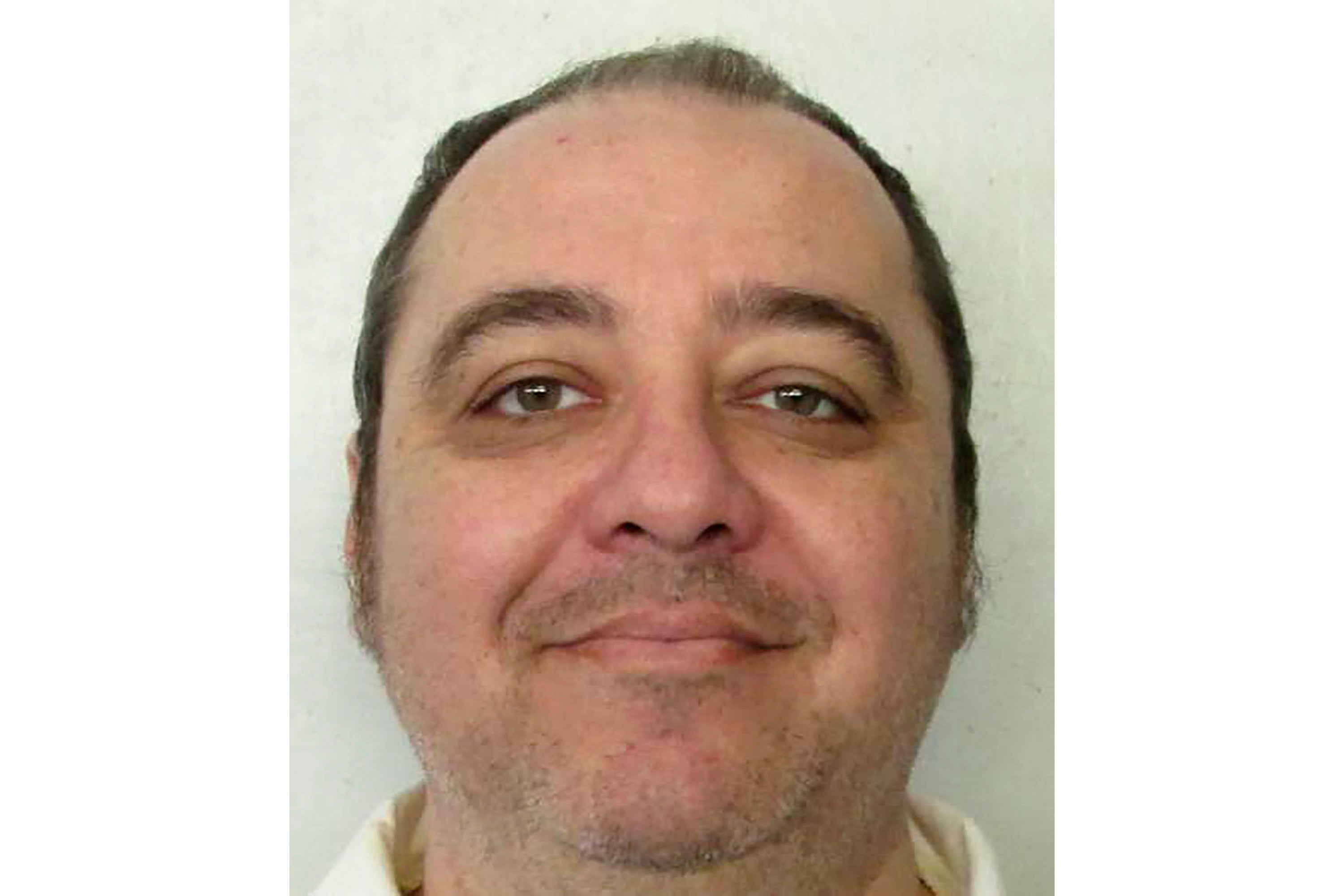Execution of Alabama inmate with nitrogen gas condemned by advocacy groups
Kenneth Eugene Smith became first death row prisoner to die via the untested method
Alabama’s decision to execute death row prisoner Kenneth Smith by nitrogen gas, the first of its kind anywhere in the world, has been condemned by advocacy groups.
Smith’s attorneys say that the execution, which took place on Thursday night, violated his constitutional rights but the Supreme Court refused to stall it.
The execution was condemned by several human rights organisations, including Amnesty International, the United Nations and Reprieve.
“Mr Smith should have never been killed, let alone in such a gruesome manner,” said American Civil Liberties Union Deputy Legal Director Yasmin Cader.
“Alabama’s execution of Kenneth Smith in a horrific, reckless, and untested manner is a profound illustration of the barbaric practice of capital punishment.”

Shortly after officials administered the death penalty on Smith, media witnesses in the room said that the execution took approximately 20 minutes, differing to the state’s claim that Smith would be unconscious in seconds and the execution could take even minutes.
In a response to one of Smith’s appeals, the state called the new method “the most painless and humane method of execution known to man.” Still, when responding to questions about the execution, including reports that Smith was seen “writhing and thrashing” for about two to four minutes followed by five minutes of heavy breathing, Alabama Department of Corrections Commissioner John Hamm said the involuntary movements were nothing out of the ordinary.
“They said lethal injection was humane - that was a lie. They’ll claim this execution was humane, and that is a lie, too. The whole purpose of these methods is to hide pain. How many more prisoners must die agonizing deaths before we see executions for what they really are: the state violently taking a human life?” said Reprieve’s US Director Maya Foa after the execution took place.
Smith, 58, was convicted of capital murder in 1996 over the slaying of 45-year-old Elizabeth Sennett in 1988. He was part of a two-person team that orchestrated the murder of the pastor’s wife. Prosecutors say he was paid $1,000 to commit the crime.
The jury voted 11 to 1 in favour of Smith serving life in prison without parole, but the judge who oversaw the case handed him the death penalty. Alabama has since removed the power of judges to override a jury’s verdict.
Smith had been sitting on death row for three decades. In 2022, officials attempted to execute him through lethal injection but the attempt was botched after those administering the drugs could not place intravenous lines into his system.
It was the third consecutive execution that failed because officials could not place the lines into prisoners.
At a news conference on Friday, the United Nations deplored Smith’s death.
“We deeply regret the execution of Kenneth Smith in Alabama despite serious concerns that this novel and untested method of suffocation by nitrogen gas may amount to torture, cruel, inhuman or degrading treatment,” said spokesperson Ravina Shamdasani.
“Let’s just bring an end to the death penalty. This is an anachronism that doesn’t belong in the 21st century. There is no proof that the death penalty deters crime but on the contrary there is a lot of evidence of miscarriages of justice.”
Ms Shamdasani pointed out that capital punishment is inconsistent with Alabama’s proclamations of valuing life. The state bans abortions at all points of pregnancy.
“We urge all states to put in place a moratorium on its use as a step toward universal abolition.” Amnesty International followed suit, also calling for a moratorium of the death penalty.
“The death penalty is the ultimate cruel, inhuman and degrading punishment and accounts of Kenneth Smith’s last moments simply show that there is no humane way to take someone’s life,” the organisation said. “It is high time for those in power to stop trying to fix the failed experiment that is the death penalty.”
Mississippi and Oklahoma have also authorised nitrogen hypoxia for executions.
“There are so many unanswered questions about this protocol and I think there are real concerns that Smith will suffer a cruel and painful death, while possibly endangering others in the execution chamber,” Robin Maher, executive director of the Death Penalty Information Center, said in a statement.
In an appeal filed in November, Smith’s attorneys argued that the method “can cause severe and permanent injuries short of death, including a persistent vegetative state, stroke, or the painful sensation of suffocation.”
However, US District Judge R Austin Huffaker, denied the appeal in a ruling on Wednesday, while writing that Smith was not “guaranteed a painless death.” Smith’s attorneys plan to appeal the decision, meaning it could wind up before the US Supreme Court.
The Equal Justice Initiative, an organisation that works to end mass incarceration, condemned the judge’s ruling, stating that it was unprecedented for the state to subject someone to a second execution attempt.
“Alabama’s plan is grotesque and unnecessary human experimentation that offends any just society’s sense of decency and humane punishment,” the group said in a statement.
“Alabama is threatening more than the loss of life in its plan to Kenny Smith, it is also threatening any semblance of credibility and integrity for its legal system.”
The Independent and the non-profit Responsible Business Initiative for Justice (RBIJ) have launched a joint campaign calling for an end to the death penalty in the US. The RBIJ has attracted more than 150 well-known signatories to its Business Leaders Declaration Against the Death Penalty – with The Independent as the latest on the list. We join high-profile executives such as Ariana Huffington, Facebook’s Sheryl Sandberg and Virgin Group founder Sir Richard Branson as part of this initiative and are making a pledge to highlight the injustices of the death penalty in our coverage.
Bookmark popover
Removed from bookmarks